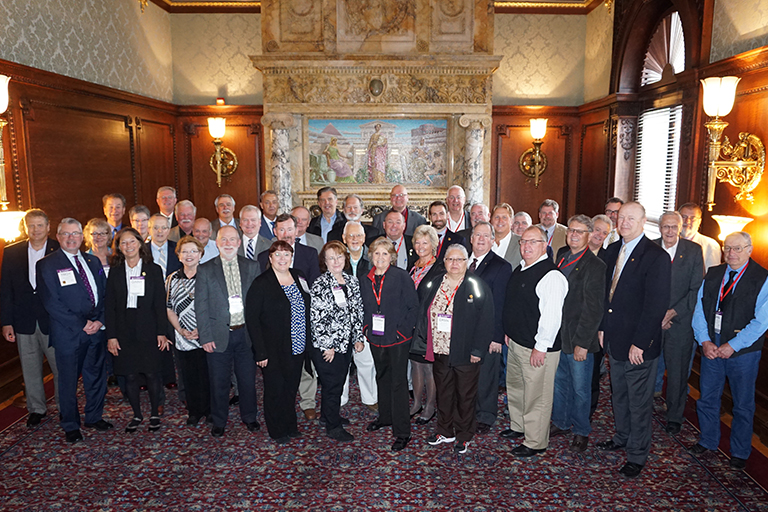By Kent Singer, CREA Executive Director
Every spring, right after the cherry blossoms bloom, electric cooperative representatives from all over the country converge on Washington, D.C., for the National Rural Electric Cooperative Association Legislative Conference. They review what Congress is doing and how it will affect electric co-ops and their members. They also meet with senators and representatives and talk about legislation that is needed. This year, about 60 directors and staff members from Colorado co-ops were there to share concerns from back home with the Centennial State’s congressional delegation.
For the first time in three years, both houses of Congress were in session during our stay. We met with Sens. Michael Bennet (D) and Cory Gardner (R), as well as Reps. Mike Coffman (R) and Scott Tipton (R). And we met with staff members from the rest of the state’s congressional offices. We had productive discussions with our elected officials and with the staff members of those who were unavailable. We let them know our position on a few federal actions that could help us keep electricity affordable for our co-op member-owners.
We asked for support for continued funding for the electric co-op loan program administered by the Rural Utilities Service (formerly the Rural Electrification Administration or REA). We reminded them of the importance of this funding since the electric utility business requires significant capital investments to keep the lights on. The interest paid on the loans to finance those projects is one of the largest expenses for most co-ops. But since co-ops repay those loans at an interest rate higher than what the government makes on treasury bonds, this program actually makes the U.S. government about $300 million a year.
We were pleased that this year every member of the Colorado delegation supports continued funding of the RUS loan program.
Another issue that we raised with our members of Congress was the co-ops’ need to clear utility rights-of-way that traverse federal lands. We had trouble obtaining the necessary permits to gain access to these areas in recent years. In a couple of cases, fires resulted that destroyed not only co-op facilities but also private property. We asked our delegation to support pending legislation that gives utility personnel more leeway in clearing brush and trees that could interfere with lines and electrical facilities.
It was a highlight to discuss these concerns with Congressmen Coffman and Tipton in the Members’ Room of the Library of Congress. The Library of Congress is one of the most beautiful buildings in Washington and the Members’ Room includes the marble columns, stunning paintings and ornate tapestries seen throughout the building. It was a treat to visit with our representatives in this setting. We especially appreciated Congressman Tipton’s story about his grandparents’ home being energized for the first time by the REA and how grateful they were to turn on the light switch for the first time.
In addition to meeting with our representatives, the Colorado co-op directors, managers and staff heard from Rick Perry, the new Secretary of Energy, as well as other experts on a variety of issues including regulatory reform, the Farm Bill and co-op communications.
Secretary Perry encouraged electric co-ops to continue to be involved in the energy conversation going forward. And he pushed for an all-inclusive discussion.
“We need to stop having an either/or debate about renewable energy and fossil fuels,” he said, adding that President Donald Trump is committed to an all-of-the-above energy strategy for America. U.S. Department of Energy research will be conducted in areas that are most promising, Perry said. That could be wind energy, which Perry’s home state of Texas introduced in record amounts during his time as governor, or it could be changes in how we use fossil fuels.
“We want energy that is made in America, that is good for America and good for American jobs,” he said.
After additional stops at agency offices and visits to Capitol Hill, Colorado’s electric co-op representatives came home from the East Coast knowing they shared their co-ops’ concerns in D.C. And they were better prepared to continue providing a secure, reliable, affordable energy foundation for rural Colorado.

